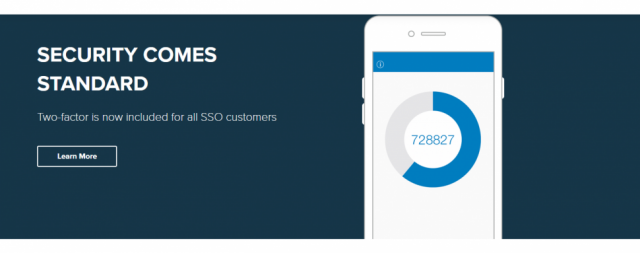
Symantec: hackers could target US and European power grids with Dragonfly 2.0 attacks
Researchers at Symantec have warned that a "sophisticated attack group" is targeting the energy sector in Europe and North America, and has been doing so for some time. A group known as Dragonfly has been detected carrying out attacks since 2011, and the campaign of attacks was recently stepped up a gear.
Dubbed the Dragonfly 2.0 campaign, the attacks included disruption to the Ukrainian power system in 2015 and 2016. After a quiet period, the group's activities have started up again, with targets hit in US, Turkey and Switzerland. On the hit list are energy facilities -- something that could have devastating consequences.

Emerging threats encourage cooperation among security professionals
According to a new survey of attendees to this year’s Black Hat USA conference, concerns around emerging threats like ransomware and polymorphic malware have sparked a significant increase in collaboration by the cybersecurity industry.
The study by security management specialist AlienVault spoke to over 600 participants at the conference and found that for 43 percent, ransomware is their biggest security concern.

Avast launches new security solution for SMBs and MSPs
Following Avast's acquisition of rival firm AVG last year the two companies' products have largely continued side by side.
Today sees the launch of one of the first fruits of the union in the form of Avast Business, combining technology from AVG and Avast, and aimed at smaller businesses and managed service providers.

New technology platform helps secure business devices
Thanks to increased use of mobile and BYOD devices, there's a significant risk to business networks from un-managed and uncontrolled devices which could offer a route for security breaches.
Israeli startup company Axonius is looking to solve this problem with a new platform designed to eliminate blind spots on the network and provide a single place to understand, manage and control the security of all end user, compute and IoT devices.

FTC spanks Lenovo for bundling security-compromising adware on laptops
Lenovo has settled with the Federal Trade Commission after selling laptops with VisualDiscovery adware pre-installed. The Superfish-developed adware was installed without users' consent and made machines vulnerable to man-in-the-middle attacks.
On top of this, the adware shared users' browsing data with third parties. As part of the settlement, Lenovo must gain explicit consent from users before engaging in similar tactics in the future, and must not misrepresent software that serves to inject ads into browsing sessions. The FTC did not, however, prohibit Lenovo from installing adware on its hardware, nor did it impose a financial penalty on the Chinese company.
How to fight back against the email scammers
Business Email Compromise (BEC) has become one of the most popular tactics deployed by fraudsters in recent years. A step up from the numerous but low-quality spam campaigns that clog most inboxes on a daily basis, BEC attacks involve a planned attack on a specific target, aided by the impersonation of a trusted contact.
The most commonly seen tactic is to take on the guise of the CEO and use their authority to trick a financial department into transferring funds, while variations include impersonating suppliers and business partners, and going after sensitive data rather than direct payment. In its most recent report, the FBI estimated that financial losses from these attacks is more than $5.3bn since October 2013.

How to deal with immediate cyber threats
As the threat of invading malware increases (viruses, worms, Trojans, bots, just to name a few), companies, small and large, will continue to use technology as a means of defence. The antivirus industry is extremely large and continues to garner major investment. As with any technology niche, there is both good and bad within what’s called advanced endpoint security, but it will continue to be installed as a means to protect against modern malware and other possible threats.
It is interesting to me that the term virus has become the way most people understand how computers or enterprise systems become infected. I think it is because people understand the flu and the common cold. And they generally understand how to protect against catching the flu or catching a cold. The most important protection is information.

Ransomware is the top threat to business data
New research from research organization the SANS Institute reveals that frontline IT professionals consider ransomware to be the top overall threat to data availability.
Insider threats and denial of service are also considered top threats to sensitive data. While the majority of respondents indicate that they escaped actual compromise of sensitive data in the last year, enough respondents did lose data to provide valuable lessons from these events.

New blood needed to solve the cyber security skills crisis
Senior figures in IT security see enticing staff from non-IT backgrounds and encouraging young people into the industry as vital to addressing the cyber security skills shortage.
A new study commissioned by MWR InfoSecurity and carried out by security discussion and networking group RANT shows respondents feel the core skills needed in cyber security are curiosity (46 percent) or on-the-job experience (34 percent), with no respondents saying a university IT degree is crucial.

Juniper buys security startup Cyphort
Juniper Networks has announced plans to acquire security analytics software firm Cyphort.
By acquiring Cyphort, Juniper will have access to its open-architecture platform that features a machine learning powered analytics engine that is capable of integrating with existing security tools to aid companies in detecting threats that have been missed by their first-line of security.

47 percent of UK teens have been cyber bullied
According to a new study of 1,000 UK teenagers, 47 percent have been cyber bullied with 70 percent experiencing it on social media and Facebook being the most common platform.
The survey by McAfee reveals part of the problem appears to be that teens are not getting proper guidance at home or at school about staying safe online.

With Android Oreo, Google is introducing Linux kernel requirements
Android may be a Linux-based operating system, but the Linux roots are something that few people pay much mind. Regardless of whether it is known or acknowledged by many people, the fact remains that Android is rooted in software regarded as horrendously difficult to use and most-readily associated with the geekier computer users, but also renowned for its security.
As is easy to tell by comparing versions of Android from different handset manufacturers, developers are -- broadly speaking -- free to do whatever they want with Android, but with Oreo, one aspect of this is changing. Google is introducing a new requirement that OEMs must meet certain requirements when choosing the Linux kernel they use.

Okta adds two-factor authentication
Okta has recently made three major announcements. First, it introduced new developer product toolkit capabilities, allowing developers to add Okta’s identity-driven security solution to their own applications with ease.
This has been announced during Oktane, its user event in Las Vegas. New features include easy and secure authentication, rapid customization and branding, out-of-the-box workflows, as well as securing APIs that are exposed to third-party developers.

30 percent of Americans would leak private data for $1,000
As we carry out more of our day-to-day transactions online, so the amount of information about us that exists out on the internet grows.
That means there are more and more opportunities for data to be leaked or stolen, but a new study by IT staffing company Modis reveals that people still aren't taking their privacy seriously.

The biggest challenges in mobile security
In the past 20 years, we have seen a boom in mobile adoption and the arrival of the Internet of Things, but recently these advancements have been overshadowed by cybersecurity attacks which have targeted celebrities, the NHS and even the CIA. As a result, concerns for our online and mobile security have sky rocketed for both B2B and B2C customers.
These hackers’ skills are forever evolving, and our ability to stay one step ahead is becoming increasingly difficult, with providers embarking on a never-ending search for ways to stop these attacks. So, what are the current challenges facing the world of mobile security and how can telecoms and Mobile Service Providers (MSPs) overcome them?